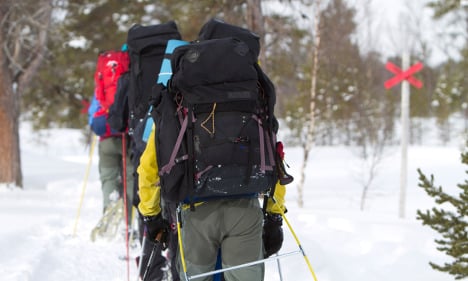
Sweden is a popular destination for expat families. Photo: Carolina Romare/Image Bank Sweden

Mexican Diego Planas Rego enjoying the snow on a visit to Kiruna in northern Sweden. Photo: Private
Swedes should be proud so many foreign graduates are choosing to relocate here, rather than being shocked by our decision to brave the cold, argues The Local's Editor Maddy Savage.


